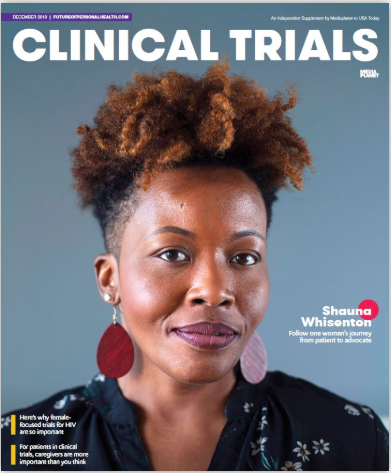SCDC Update
New ASH Clinical Practice Guidelines on Sickle Cell Disease-Related Transfusion Support
The American Society of Hematology (ASH) released a new Clinical Practice Guidelines on Sickle Cell Disease (SCD)–Related Transfusion Support. These guidelines are part of a series of five SCD guidelines ASH is developing to provide updated treatment guidelines that reflect the newest evidence about the disease to help the medical community better treat people with SCD. Access this guideline in Blood Advances, view a short video about the guideline here, and learn more here. The first guideline in the series focused on Cardiopulmonary and Kidney Disease was released late last year, along with a short video. Stay tuned for the upcoming guidelines focused on Cerebrovascular Disease, which will be released in the first quarter of 2020, with the final two guidelines on Management of Acute and Chronic Pain, and Transplantation expected later in the year.

Provide Feedback on ICER Draft Report by February 20
Last year, the Institute for Clinical and Economic Review (ICER) announced that it planned to assess the comparative clinical effectiveness and value of crizanlizumab, voxelotor, and L-glutamine, three U.S. Food and Drug Administration-approved therapies for the treatment of sickle cell disease (SCD). ICER is an independent and non-partisan research organization that objectively evaluates the clinical and economic value of prescription drugs, medical tests, and other health care and health care delivery innovations. In the Draft Evidence Report, ICER notes that SCD has been a historically underserved area for research, with no new treatments for decades; as such, patients and clinicians have struggled. The report is open to public comment until February 20, 2020.
Help Raise Awareness for Blood Donation this Black History Month
February is Black History Month, a month that focuses on recognizing the central role of Black people in United States history. Blood transfusions are one of the most critical treatments for the 100,000 Americans living with sickle cell disease (SCD), who are primarily of African descent. It is essential to have a robust supply of compatible red cells ready; the best supply source has been found to come from those of similar race and ethnic backgrounds.The Sickle Cell Disease Coalition’s Minority Blood Donation Work Group encourages you to spread awareness about blood donation for those living with SCD. How can you help? Post the following messages to social media:
Tweet: If you are of African ancestry, consider donating your blood this #BlackHistoryMonth to those with #sicklecell. They need blood from those of similar ancestry in order to stay healthy! http://bit.ly/2swqGAT
Facebook: If you are of African ancestry, this Black History Month, consider donating your blood to those impacted by sickle cell disease. Those living with sickle cell need transfused blood from those with similar ancestry in order to stay healthy. Find your local blood drive today: http://www.aabb.org/tm/donation/Pages/Blood-Bank-Locator.aspx

How a Clinical Trial Participant Became an Advocate for the SCD Community
Shauna Whisenton thought she’d live with sickle cell disease for the rest of her life — until one clinical trial changed everything. Shauna was once an individual living with sickle cell disease (SCD). Now she’s an advocate for better therapies, a cure, and better understanding of SCD. Shauna is the Manager of SCD Community Engagement for the ASH Research Collaborative, a Sickle Cell Disease Coalition member. Click here to read more about Shauna’s journey.

Introducing the Global Alliance of Sickle Cell Disease Organizations
A global alliance for sickle cell disease, which is the first alliance to represent individuals living with SCD globally, was officially launched last month. Its mission is to reduce the global burden of SCD and ensure equitable access to optimal care and treatment by all people with SCD worldwide. The Global Alliance of Sickle Cell Disease Organizations (GASCDO), met last month for its inaugural meeting in Amsterdam, Netherlands. A key outcome of the meeting was the election of the interim Chair of the Board of Directors and the President/Chief Executive Officer. With the support of companies like Novartis, Pfizer, Global Blood Therapeutics, bluebirdbio, and Sanofi Genzyme, GASCDO is uniquely positioned to take a leading role in coordinating the work of SCD patient advocacy organizations. For more information on the new alliance, visit scdglobal.org.
CDC’s Sickle Cell Data Collection (SCDC) Program Announcements
The Centers for Disease Control and Prevention’s (CDC)Sickle Cell Data Collection (SCDC) program determines the number of people living with sickle cell disease (SCD) and monitors changes related to their health over time. The following program announcements were just released:
Data Reports: SCDC data reports for 2005 and 2010–2016 for California and 2005 and 2010–2015 for Georgia are available online.
Fact Sheets: Two new fact sheets highlight the most recent annual SCDC data for California (2016) and Georgia (2015):
“Sickle Cell Disease in California” and “Sickle Cell Disease in Georgia” provides an overview of the demographics and healthcare utilization patterns of people with SCD and is targeted to members of the general public looking for basic information about those living with SCD.
“Hospital and Emergency Department (ED) Utilization for People with SCD” provides additional details about healthcare utilization patterns in this population (including readmission and payer information) and is targeted to policy officials, public health professionals, and SCD organizations.
Forecasted Funding Opportunity: The CDC plans to fund up to five recipients for a three-year period of performance to participate in the implementation of a state-wide sickle cell disease (SCD) surveillance system. This funding opportunity will improve and expand the current Sickle Cell Data Collection efforts by increasing the number of states to implement the program. Activities will include 1) surveillance team engagement, data collection, and annual reporting of aggregate level data, and 2) analysis of SCD surveillance data and dissemination of results. For more information, please visit www.grants.gov/web/grants/… or contact Mary Hulihan, ibx5@cdc.gov.
**Upcoming SCD Events **
Living Well With Sickle Cell Symposium
The Sickle Cell Disease (SCD) Program at Children’s National Hospital in Washington, DC, will be hosting its 10th Annual Family Education Symposium on “Living Well With Sickle Cell” on March 7, 2020. This year’s symposium will focus on helping individuals with SCD and their families manage their disease by providing education about the latest and greatest in SCD therapies, including newly-approved medications, gene therapy, and bone marrow transplant. The symposium will also review specialty clinics available to the patients at Children’s National, and conduct breakout sessions designed to give individuals with SCD and their families an opportunity to provide feedback about unmet needs at home and in their communities. Children’s National is a member of the Pediatric Hospital Sickle Cell Disease Collaborative, a Sickle Cell Disease Coalition member. Free parking, breakfast, and lunch will be provided. RSVP here.
ABC-ADRP Blood Donation Public Awareness Forum: Aligning Efforts to Create Meaningful Change
Join America’s Blood Centers (ABC) and ADRP for an upcoming open forum on March 10, 2020, from 8am-10am at the Ritz Carlton in Pentagon City, VA to discuss the need for increased public awareness related to blood donation. Patients, including those impacted by sickle cell disease, depend on the collection of more than 11 million units of blood each year from voluntary donors, yet the ability to collect a constant, sufficient supply is becoming increasingly difficult. ABC and ADRP will host an open dialogue to discuss current challenges and opportunities related to a robust, diverse donor base. RSVP here. If you have any questions about the event, please email: info@adrp.org.
STAMP Webinar - Transfusion in SCD
Many adults living with sickle cell disease (SCD) have challenges accessing care due to a national shortage of SCD-trained hematologists. To help address this gap, the Health Resources and Services Administration is collaborating with the U.S. Department of Health and Human Services’ Office of Minority Health to deliver a new telehealth series for primary care providers called STAMP, the SCD Training and Mentoring Program. This series, taught by hematologists using a case study-based, tele-mentoring approach, will cover the basics of SCD care, such as pain management, hydroxyurea, and preventive services. Participating primary care providers will also be eligible to request on-demand consultative services from hematologists to further support patient care. The next training is focused on Transfusion in SCD and is scheduled for March 5, 2020, at 3pm ET. Learn more here.

4th Global Congress on Sickle Cell Disease
On April 7-9, 2020, the Global Sickle Cell Disease Network’s 4th Global Congress on Sickle Cell Disease will take place at the United Nations Educational, Scientific and Cultural Organization Headquarters in Paris, France. The theme for the Congress: One Sickle-One World-One Voice emphasizes the single-origin and nature of the sickle gene mutation, the rapidly increasing connectivity of the world we live in and the compelling need to find one united and coordinated voice for SCD worldwide. Click here to learn more, and to register.
First IASCNAPA Conference
The International Association of Sickle Cell Nurses and Professional Associates (IASCNAPA) is hosting a Sickle Cell Disease Conference: Treating the Whole Person, April 17, 2020, in Memphis, TN. This is an all-day conference designed to provide information on treating the whole person with sickle cell disease. Experts will provide practical tools using case studies and interactive exercises. Sessions will include pain management and mental health tools; transition skills; and “out of the box” techniques such as virtual reality, and drama therapy. Practical sickle cell resources for nurses, advanced practice practitioners, and other healthcare professionals will also be provided. Click here to learn more and to register.
Foundation for Sickle Cell Disease Research Symposium
The Foundation for Sickle Cell Disease Research (FSCDR) is committed to supporting innovative research in sickle cell disease (SCD) to help maximize the quality of life and improve survival for the generations of people affected by SCD. The Symposium focuses on interactive education, sharing of best practices, and exploring novel approaches to dealing with SCD that goes beyond theory to develop practical, real-life solutions. The next annual FSCDR symposium will take place June 12-14, 2020, in Fort Lauderdale, FL. Learn more and register today.

Spread the Word
The status quo is unacceptable & we are setting out to change it. Join us to #ConquerSCD! www.scdcoalition.org